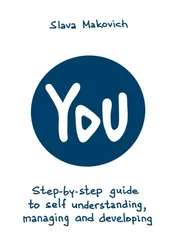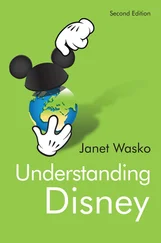A different question is 'Do you believe in God?' About 35% British people say that they believe there is some kind of supreme Being; which means that 65% do not believe in God. Even twenty years ago it was slightly embarrassing to admit that you were an atheist but now it is quite common. So the first point is that, although of course there are some millions of devout and committed Christians, they are a smallish minority in our population - and they are getting older. Religious belief is weakest among the young, although it is possible that as they grow older these young people will turn to Christianity.
Cultural Christianity
It seems that even those who do not believe in God, let alone a Christian God, still identify themselves with a cultural Christian inheritance which is all around them in the ceremonies, art, memorials and above all the churches of Britain. Yet the British, both adults and children, are almost wholly ignorant of the basic facts surrounding Christians and other world religions. Lessons in schools are often given over to discussions about 'How to Live' and 'How to be Good'. Reading of the Bible (widespread amongst almost all the population when I was a child) is unknown except among small religiously committed groups. The lessons on 'Atheism' which were mostly lessons on comparative religion in Soviet schools were much more informative about the various branches of Christianity than the teaching of religion in a nominally religious state like ours. [You can read more about religion in schools in the chapter on Education.]
As a consequence, the British can no longer recognise or refer to the stories and myths in the Bible which are central to so much of our literature, art and music. This is a great loss of knowledge and culture. Our language is full of idioms, phrases, jokes, moral analogies and Biblical references which make no sense if you don't know the original Bible stories and messages. The Bible, when it is read not as an organ of fundamentalist truth, but as an anthology of books of history, poetry, myth, prophesy, fable, biography and so on, is full of rich and startling material. How can anyone who is not familiar with, for example, the story of Noah's Ark appreciate and enjoy the ironic account of that voyage given in the first chapter of Julian Barnes' A History of the World in 10 and a half Chapters? (I mention this book because it is read in many Russian universities.) There are millions of other books in which knowledge of the Bible is essential for true enjoyment and understanding.
So what remains? For the English, the Church of England is a national institution which we have the right to use if we wish, and which provides the setting for many of our national, local and personal ceremonies. All the church buildings which had been 'Catholic' before the Reformation (in the 1530s) became churches within 'the Church of England' when Henry VIII announced that he was to be Head of the Church. There are now nearly 17,000 Church of England churches scattered over the country, one in every village, three or four in every small town and correspondingly more in the larger towns - most of them built in mediaeval times, often as much as 700 years ago. They are built in local stone and brick, intended for the parish community, and, in our mild climate, designed to last for ever. Many of them are extremely beautiful and a precious part of our historical heritage.
In some churches services are held daily, sometimes several times a day on Sundays; in other churches there may be a service once a week, or once a fortnight, even once a month. Thousands of churches are usually empty, even if they are also used for community meetings, local exhibitions, concerts. Some have already been sold off. And yet these under-used buildings would be missed if they were not there, especially in the countryside where each tower or spire seen in the distance marks another village. Millions of the English - alone or perhaps with another person - will choose to sit quietly for a few moments in a church, many of them in Christian prayer, and just as many non-believers because they love the special quietness preserved in that atmosphere. Non-believers can and do have intensely 'spiritual' feelings. They can be just as aware that we need to abstract ourselves sometimes from immediate thoughts and worries, and reflect quietly on our relationship with the rest of the world, be it a world of nature or of other human beings. Unfortunately neither the believers nor the non-believers can save all these church buildings from ceasing to be used as churches, After neglect comes collapse. The state will probably save some buildings, especially the great Gothic Cathedrals, because they are part of our national heritage. Time will ruin the others.
For those of you who are interested in the Protestant tradition, even if for millions it is now only a cultural tradition, it is worth making a point about typical British reactions to Russian Orthodoxy. We find the rich, elaborate rituals, the beautiful liturgy and the art immensely impressive; but the mysterious powers of the priests and the utter devotion of the believers disturb Protestants. Our rituals are less intense, sometimes plain and perfunctory, although the singing of English Cathedral choirs is, of its kind, beautiful without compare anywhere in the world. Protestant worship emphasises the community of the congregation through the reading of the Bible; sermons which discuss the teachings of Jesus and their relationship to modern life; and the individual's personal relationship with God. It is mistrustful of priests as the special bearers of God's mysterious truth; it prefers a more democratic approach to organizing the church. In the Protestant view, all of us are adults in the sight of God.
In recent decades both the Church of England and the other Protestant groups and sects in Britain including Methodists and Baptists have been inspired, partly by the black Caribbean evangelical churches, to hold services which are much livelier than the traditional services, with modern music and even dancing. In some parishes the congregation are even offered a choice of services: using the Church of England prayer book and its seventeenth century liturgy one week, and using a modern form of the service with accompanying rock music the following week. The Church of England has always accepted many forms of Christian worship within its walls!
Wales is mostly a country of Protestant chapels (small simple churches) with a strong tradition of choral singing. The Church of Wales - a minority church in Wales - is more-or-less identical with the Church of England. Scotland has its own national Church of Scotland which is theologically different from the Church of England; its ministers (not priests) are Presbyterians. Presbyterians do not accept Bishops in their church, and like other Protestant groups prefer to concentrate on the wishes and votes of each congregation. Besides these different Protestant churches, we also have a significant number of Catholic churches throughout the country, mostly serving the Irish (or formerly-Irish) community. In Northern Ireland itself, the two Christian communities, Protestant and Catholic continue to challenge each other across the street, although in 2009 it seems that they are learning to live with each other. All of these churches with the exception of the black evangelical churches have a declining membership.
Islam
At the end of the first edition of Understanding Britain I quoted the words of a young Muslim.
To be a Muslim means to believe in One God and Muhammed as the Messenger of God; to pray five times a day; to give a certain amount of money to the poor; to perform a pilgrimage; and to fast during Ramadan. I am faced with the question, do these facets of being Muslim affect the way I live with other people in Britain? The answer is 'no' since my religious duties are very personal. Then I ask, 'Should Muslims assimilate themselves into British society?' I don't think Muslims should abandon their principles and ideals; they should retain their Islamic identity. But at the same time they should mingle and merge with the rest of society.
Читать дальше












